Difference Between Family Doctor and Internal Medicine Doctor
-
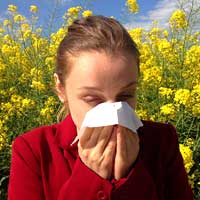
Allergist
An allergist is a healthcare professional who specializes in the identification and treatment of asthma, inherited immunodeficiency diseases, and autoimmune diseases, allergies due to animals, foods or medications, and related diseases.
In addition to that, an allergist is also trained in determining the factors that trigger such diseases.
-
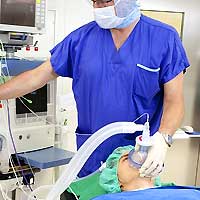
Anaesthesiologist
Anaesthesiologists play a major decisive role in pain management. As their name suggests, anesthesiologists are physicians trained in anesthesiology or the science of administering anesthesia to patients during the surgeries. Before (most) surgeries anesthesia is given to either relieve the pain or put them to sleep in the class of the operation.
Pain direction specialist is the medical physician who helps the patients for ongoing pain management for chronic weather condition.
-

Andrologist
An Andrologist is the male person equivalent of a gynecologist; they are concerned with helping their male patients with urological, sexual, and reproductive health that are unique to men.
Interestingly, unlike gynecology, which requires plenty of medical lath certification programs worldwide, andrology has no such requirements. Andrology has only been studied as a divide specialty only from the tardily 1960s.
-

Cardiologist
Cardiologists are medical professionals that examine and treat illnesses associated with the cardiovascular system which includes the middle and claret vessels.They also help their patients learn about their risk factors for heart affliction and decide what treatment or procedure should they undergo.
A pediatric cardiologist is a specialized physician within cardiology who treats and diagnoses eye complication in children.
Cardiac surgeons who specialize in cardiac catheterization, angioplasty, and stenting treatment and diagnosis are usually chosen Interventional cardiologists.
-
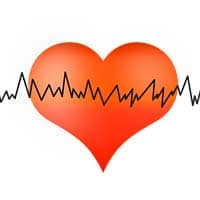
Cardiac Electrophysiologist
A Cardiac Electrophysiologist (EP) is a cardiologist who is specialized in the heart's electrical organisation that includes treating heart rhythm issues such equally atrial fibrillation.
Cardiac electrophysiology is viewed as a sub-subject of cardiology and internal medicine (only from the 1970s) in many countries, and it typically requires 2+ years of internship preparation after a general cardiology fellowship.
-

Dermatologist
Dermatologists are health professionals primarily focused on the diagnosis of conditions associated with the skin, hair, nails.
This blazon of doctor treats a variety of skin disorders namely acne, skin cancer, and over 3000 skin weather.
Aside from that, they could likewise provide you several treatments that deal with everything from acne handling to anti-aging procedures.
-
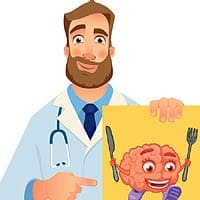
Dietitian/Dietician
A dietitian is a specialist in man nutrition and the regulation of diet, also known equally dietetics. A dietitian recommends nutrition based on the patient's medical weather condition (such as eating disorders) and individual needs. Aspiring students who desire to become a dietitian should complete medical degrees and obtain licenses to assess, diagnose, and treat nutritional malfunctions.
-

Emergency Room (ER) Doctor
Emergency doctors care for patients with an immediate medical attention such as acute illnesses or injuries from accidents, and they would undertake acute interventions to stabilize the patient.
The emergency physician is a professional in high-level cardiac life support techniques such as resuscitation, vital signs, trauma intendance in fractures and soft tissue injuries, and supervision of other life-threatening conditions.
-
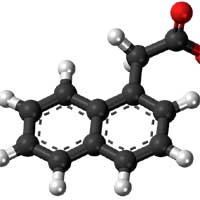
Endocrinologist
An endocrinologist is a medical dr. under the category of internal medicine, who studies the diseases that affect the endocrine system which is responsible for secreting and regulating the trunk's hormone levels.
Reproductive Endocrinologist treats both women and men with infertility problems.
-
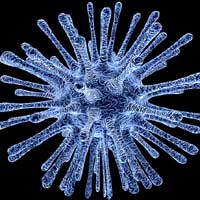
Epidemiologist
An epidemiologist studies the causes and patterns of diseases in a population or expanse, and make efforts to foreclose epidemics/pandemics from reoccurring.
They are more of scientists rather than doctors who specialize in the epidemic disease which is highly viral (such equally new diseases) and provide or develop cures and likewise modes of prevention of diseases with vaccinations.
-

Family Medicine Dr.
Family physicians who specialize in family medicine are knowledgeable in and tin can treat a wide range of medical diseases of patients of all ages. These doctors provide preventive care for patients which includes almanac checkups, periodic immunizations, contraception, and allergy medications.
In general, a medico specialized in this field is a pediatrician and an internist combined into ane. They besides referred as hospitalists.
-
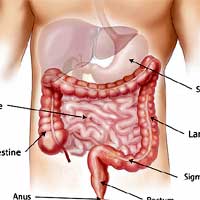
Gastroenterologist
As their name suggests, gastroenterologists are medical professionals focused on the diagnosis and treatment of diseases of the gastrointestinal (digestive system) tract which include the breadbasket, pocket-size and large intestines, pancreas, and liver.
Gastroenterologists likewise perform a variety of procedures in colonoscopy, endoscopy, ERCP, endoscopic ultrasound and liver-biopsy likewise.
-

Geriatrician
A Geriatrician takes care of older adults. Because of their declining immunity that arises with senility and their multiple health complications, the elderly demand to exist highly taken care of. The main departure between elderliness, the intendance of aged people, and gerontology, which is the study of the aging process itself. There are dissimilar types of geriatricians inside Elderliness based on the diseases in elders.
-

Hyperbaric Md
Hyperbaric physicians/doctors are medical doctors trained in hyperbaric medicine such as providing hyperbaric oxygen (HBO – college pressure level of Oxygen than what nosotros run into in the air around us) therapy for conditions such equally decompression illness and carbon monoxide poisoning from fire fumes.
Hyperbaric medicine covers hyperbaric oxygen treatment, which is at the atmospheric pressure level to increase oxygen flow in the body.
-

Hematologist
A hematologist is a specialist in hematology which is the study of blood, blood-forming organs, and blood-related diseases (sickle cell).
Typical hematologist deals with the treatment of blood disorders and malignancies, including types such as hemophilia, leukemia, lymphoma and sickle-prison cell anemia.
-
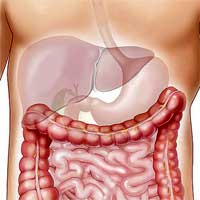
Hepatologist
A hepatologist is a specialized doctor dealing with the study, prevention, diagnosis and direction of diseases that impact the liver, gall-float, biliary tree, and pancreas.
The term hepatology is derived from the Greek words "hepatikos" meaning liver and "logia", pregnant study.
-
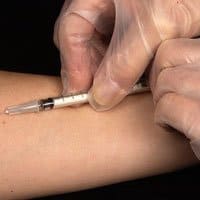
Immunologist
An immunologist is a medical professional who investigates and studies the physiological processes and functions of the body's immune system.
This knowledge is then practical in the diagnosis and treatment of a range of diseases that impact the said arrangement.
-
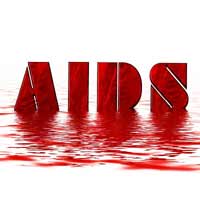
Infectious disease Specialist
Infectious disease specialist (medical doc) who treats and diagnose circuitous infections such every bit HIV or TB. The infectious affliction specialist tin can perform their services either on hospitals, or it may be out-patient based.
Check out the top 15 deadliest bacterial diseases here.
-
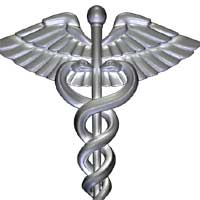
Intensivist
An intensivist is a medical doc specialized in training and treating critically sick patients in ICU (Intensive Care Unit). Intensivists can be internal medicine specialists (nearly often pulmonologists), anesthesiologists, ER medico, pediatricians, or surgeons.
They are as well referred as a critical intendance doctor or critical intendance medicine specialist.
-

Internal Medicine Specialist
An Internal Medicine Specialist is too chosen internist, who specializes in the management and handling of chronic adult illnesses through non-surgical procedures like pain relievers and anesthetics.
Internists usually take sub-branches in diseases apropos detail organs or organ systems. They generally work in the hospitals to render their services.
-
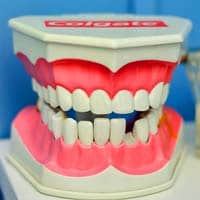
Maxillofacial Surgeon / Oral Surgeon
Maxillofacial Surgeons are dentists who trained in performing surgery of the oral fissure and jaw. The maxillofacial surgeons specialize in treating and reconstructing areas of the face, head, or neck later on an injury or surgery.
The surgeries include Dentoalveolar surgery, bone-fused dental implants, cosmetic surgery of caput and neck, and the corrective jaw surgery.
-

Medical Examiner
A medical examiner is a publicly appointed doctor by the government who specializes in forensic pathology, and autopsies. The medical examiner reviews deaths as defined by regulations and local laws which are essential for public health and welfare.
These medical examiners review the autopsy reports to assess the verbal crusade of the expiry other than natural causes such as sudden and unexpected deaths.
-
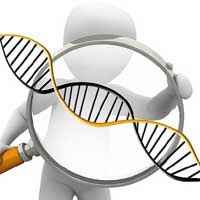
Medical Geneticist
A medical geneticist is trained in full general medicine, genetic diagnosis, and the treatment of patients with genetic disorders. They use molecular genetics, cytogenetics, and biochemical tests to care for patients with a comprehensive molecular and clinical approach.
Bank check out the genetic testing pros and cons here.
-

Neonatologist
A neonatologist is a type of pediatrician who specializes in the medical intendance of newborn infants, particularly the critically ill premature and full-time newborn infants.
Also, neonatologists piece of work equally general pediatricians providing care to ICU-borne new-built-in babies who require critical and urgent care. Some neonatologists, particularly those in educational settings, may monitor babies for months or sometimes years after hospital belch to better evaluate the long-term effects of health problems early on in life.
-
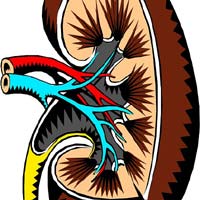
Nephrologist
Nephrologists are trained medical doctors in the diagnosis and handling of diseases of the kidney and urinary systems, such as inflammation of the kidneys, kidney biopsy, dialysis, chronic kidney disease, or cancer.
For kids, there are pediatric nephrologists, who but care for children.
-
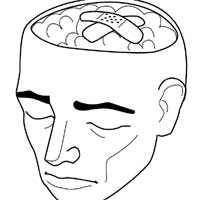
Neurologist
A neurologist is a doctor who specializes in the diagnosis and handling of the diseases that affect the nervous system (encephalon, spinal cord, and the neurons).
Neurologists care for Demyelinating diseases (i.due east., multiple sclerosis), Cerebrovascular diseases (i.e., stroke), Headache disorders, and infections of the encephalon.
-
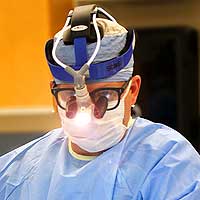
Neurosurgeon
Although they also deal with the diagnosis and handling of diseases of the nervous system like what neurologists do, neurosurgeons are licensed to operate and perform surgeries on the patient'south brain.
There are several sub-branches of neurosurgery namely: Vascular neurosurgery, Stereotactic Neurosurgery, Skull base of operations surgery, Spinal neurosurgery, Peripheral nerve surgery, Oncological neurosurgery, and Pediatric Neurosurgery.
-
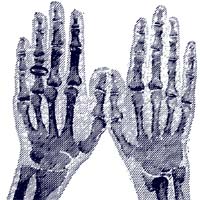
Nuclear Medicine Specialist
Nuclear medicine specialists are trained medical doctors who administer radioactive medicines for diagnosis and treatment of specific conditions that include bone scans, lung perfusion scans, & HIDA scans for gallbladder function.
The common procedures in nuclear medicine based on the medical conditions include brain perfusion & glucose metabolic imaging, blood pool imaging, gastric elimination studies, hepatobiliary imaging, lymphoscintigraphy, parathyroid imaging, pulmonary perfusion & ventilation imaging, renal office imaging, thyroid imaging, thyroid whole torso imaging, urinary tract imaging, and white blood jail cell studies.
-

Obstetrician/Gynecologist (OB/GYN)
Normally abbreviated every bit OB/GYN, an obstetrician/gynecologist is a combination of two doctors rolled into i. An obstetrician is a doctor trained in managing pregnancy, labor, and childbirth. On the other hand, a gynecologist is a doctor specialized in the female person reproductive arrangement.
Primatologist is a specialized md inside OBGYN who treats patients with a high-take chances pregnancy. Gynecologic oncologists are medical specialists who care for and diagnose women who accept cancers in reproductive organs such as ovaries and uterus.
-

Occupational Medicine Specialist
An occupational medicine (OM) specialist is a medical dr. who trained in providing continuous care for injured workers and helping them to get back to work.
They also support organizations to maintain safe and healthy workplace (Occupational medicine).
OM physicians work to make sure that the highest standards of occupational health and safety are achieved and kept in the workplace. As well, OM specialists involve in other disciplines such as prevention of disease (such every bit flu by administering the flu-shots), injury, and inability at the workplace.
-
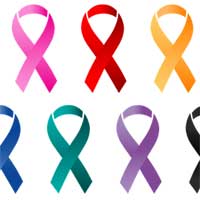
Oncologist
Coming from the Greek word "onkos" which means "tumor" or "mass", oncology is the co-operative of science that deals with cancers. Hence, oncologists are medical doctors who specialize in the diagnosis, prevention, and treatment of cancer.
There are different types of doc within Oncologist profession namely: medical oncologist (chemotherapy or medications), a surgical oncologist (surgical procedure of a diverseness of tumors), radiation oncologist (megavoltage Ten-rays or radionuclides) and pediatric oncologist (physician specialized in childhood cancer).
-

Ophthalmologist
Unlike optometrists, who are likewise "eye doctors", ophthalmologists can perform surgeries in the eyes. Moreover, because they can perform operations on the eyes, they are considered equally both medical and surgical specialists.
Ophthalmologists diagnose various centre-related diseases such as Cataract, Glaucoma, Macular degeneration, Diabetic retinopathy, dry eyes, Strabismus, Proptosis, Uveitis, Eye tumors, Refractive surgery, and more.
At that place are subspecialties within Ophthalmology to specialize in particular center diseases.
-

Orthopedic Surgeon / Orthopedist
Orthopedic surgeons (aka Orthopedist) are doctors particularly trained to diagnose, treat, and operate patients with diseases and injuries of the musculoskeletal arrangement (which includes the muscles, broken bones, ligaments, tendons, and the fretfulness).
Mitt surgeons specialize in performing surgery for hand-related injuries and complications.
-
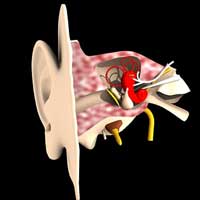
Otolaryngologist (aka ENT Specialist)
An otolaryngologist is a blazon of physician who specializes in managing and treating patients with various disorders of the Ear, Due northose, and Throat. In addition to that, they besides diagnose diseases that impact related-structures similar the caput and neck.
There are subspecialties within Otolaryngology specialize item ENT regions which include Head & Neck oncologic surgery, facial plastic and reconstructive surgery, otology-neurotology, rhinology & sinus surgery, laryngology & voice-related disorders, pediatric otorhinolaryngology, and sleep medicine.
-
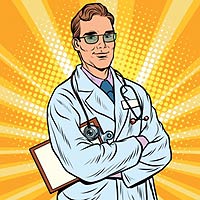
Osteopath
An osteopath (aka osteopathic doctor) is a medical md who specialized in osteopathic medicine. Osteopath strives to improve people'southward overall health and health by treating the whole person rather than a condition or disease they may take.
An osteopath can prescribe osteopathic manipulative medications and focus on stretching, massaging, and moving the musculoskeletal system to reduce hurting and improve mobility, circulation of blood and lymphatic fluids.
-

Palliative Care Specialist
A palliative medicine is sub-specialty of internal medicine which relieves suffering and better the quality of life for patients with chronic, curable or life-threatening diseases.
Physicians sometimes referred as palliative care specialists past rendering palliative therapies without curative intent (i.e., when no cure can be expected – as often happens in late-stage cancers).
Medicines and therapies are causeless to accept a palliative effect if they relieve symptoms without having a healing consequence on the underlying disease or cause (e.g., treating nausea related to chemotherapy and providing pain-killers).
-

Parasitologist
Parasitologists deal with parasites (microorganisms like bacteria, viruses, worms, and insects) that could either alive temporarily or permanently, on or within the human trunk.
Parasitologists use techniques learned from cell biological science, bioinformatics, biochemistry, molecular biology, immunology, genetics, evolution & even ecology.
Also with parasitology, at that place are subdisciplines such as medical/human parasitologists who report parasites in humans; Veterinary parasitologists who study parasites on cattle and pets (animals).
-

Pathologist
A pathologist is a trained medical medico who performs autopsies in the test of tissue (such every bit a mole) and claret samples to diagnose a disease and produces a pathological study.
A pale pathologist is a physician that studies ancient diseases. A forensic pathologist is a medical doc who performs autopsies to find the cause of decease when the criminal offence is involved in the scene.
-

Perinatologist
A perinatologist is a specialized doctor concerned with the care of the fetus and complicated, high-risk pregnancies. Perinatology sometimes referred as maternal-fetal medicine.
These types of doctors have special care on pregnant women who have chronic medical conditions such as eye diseases, blood pressure level (hypertension), diabetes, or thrombophilia).
They will assist them in the pregnancy-related complications such as preterm labor, twin/triplet pregnancies, pre-eclampsia, and so on).
-

Periodontist
A periodontist is a board certified dr. who specializes in oral health care. Also, a periodontist can even diagnose and treat periodontal illness (gum affliction) and is involved in the placement of dental implants.
Periodontal diseases include P. gingivalis, T. forsythia, and T. denticola. Untreated may pb to alveolar bone loss and tooth loss.
One must complete a dental degree before applying for the postgraduate preparation programme in periodontology.
-

Pediatrician
A pediatrician is involved in the management of the concrete, emotional and behavioral, & mental wellness of their young patients. Pediatricians focus on infants, children, teenagers, and young adults (up to 21 years old).
The pediatricians who treat teenagers sometimes referred as Adolescent medicine specialist. A developmental pediatrician specializes in treating children with disabilities such as autism, cognitive palsy, down-syndrome, ADHD, and behavioral disorders.
-

Physiatrist
A physiatrist is a medical physician who specializes in helping patients to recover function after trauma such as a stroke, or surgery.
In treating these patients, physiatrists lead a group of concrete, occupational, recreational and spoken language therapists, nurses, psychologists (for counseling), and other social workers to help with the faster recovery.
Annotation that concrete medicine and rehabilitation (PMR), also referred as physiatry or rehabilitation medicine, targets to improve and restore functional ability and quality of life for patients with physical impairments affecting the critical organs namely brain, spinal cord, fretfulness, bones, joints, ligaments, muscles, and tendons.
The other subspecialties of physiatrist include neuromuscular medicine, pain medications, pediatric rehabilitation medicine, spinal cord injury, sports medicine, encephalon injury (stroke), and palliative medicine.
-
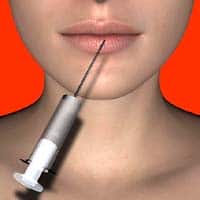
Plastic Surgeon
Plastic surgeons are specialized medical doctors in surgery that improve a person's outlook such as surgery for a nascency defect (e.m., fissure palate), or surgery following an injury or the removal of cancer, such as breast implant surgery after breast removal (mastectomy).
The sub-specialties of plastic surgery include Aesthetic surgery (cosmetics), burn surgery (fire wounds), Craniofacial surgery (congenital anomalies), manus surgery (congenital malformations), microsurgery (breast reconstruction), and Pediatric plastic surgery (birth defect corrections).
-

Psychiatrist
Psychiatrists spend the majority of their time providing medical treatments to mental-disorder patients. These patients take problems with their thoughts, emotions, or behavior (weather condition from low to Schizophrenia to Delirium to ADHD). Psychiatrists provide treatments using a combination of both concrete treatments (medicines) or psychological treatments (therapy), and social treatments.
There are many dissimilar types of a psychiatrist:
- Addiction Psychiatrists: They look after patients who have a drug or behavioral addictions (such as gambling, alcoholism).
- Child and Boyish Psychiatrists: They intendance for younger people and their particular mental health concerns (such as ADHD, Autism, Babyhood Anxiety).
- Geriatric Psychiatrists (or Psychogeriatricians): They look after the elderly (bug such equally hoarding, dementia, grief, and loss).
- Forensic Psychiatrists: They assess and care for prisoners and people accused of crimes, and have a role advising courts near how mental illness tin touch criminal behavior.
- Psychosomatic Medicine is a branch of psychiatry that deals with the relationships betwixt physical and mental illness (such every bit in Delirium).
-
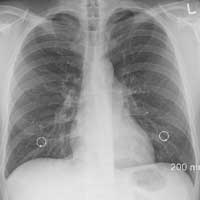
Pulmonologist
A pulmonologist is a medical professional person whose expertise falls on pulmonary (lungs) and other respiratory tract illnesses and diseases.
These type of doctors have a broad telescopic of specialization equally they tin can treat about everything from asthma to tuberculosis.
-
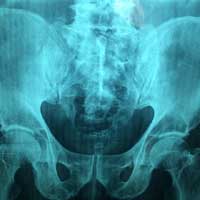
Radiologist
A radiologist is a medical professional person specially trained to diagnose and treat their patients by interpreting test results from medical imaging techniques.
Such techniques include 10-rays, magnetic resonance imaging (MRI), computed tomography (CT) browse, and positron emission tomography (PET).
-
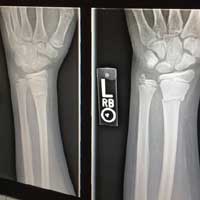
Rheumatologist
A rheumatologist is an Physician who practices in the field of medical sub-specialty named rheumatology, which deals with the diagnosis and treatment of rheumatic diseases such as back hurting, Bursitis/Tendinitis, Capsulitis, neck pain, Osteoarthritis, rheumatoid arthritis and as well immune-mediated disorders (e.grand., connective tissue diseases, soft-tissue rheumatism, and autoimmune diseases).
-

Sleep Medico / Sleep Disorders Specialist
A sleep md is a medical doctor specialized in diagnosis & treatment of sleep-related disorders as such as Obstructive Sleep Apnea (OSA).
In that location are iii types of sleep apnea namely obstructive (OSA), central (CSA), and a mixture of the 2 called mixed sleep apnea. Risk factors for OSA result in overweight, allergies, a small airway, and enlarged tonsils.
Slumber doctor also treats other slumber-related disorders namely insomnia, Restless legs syndrome, Periodic leg movement disorder, Narcolepsy, Circadian rhythm disorder and a few more.
-
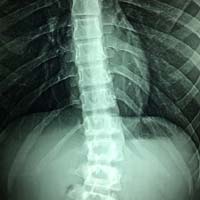
Spinal Cord Injury Specialist
Spinal cord Injury (SCI) specialists are rehabilitation medical doctors who specialize in the diagnosis and treatment of people with spinal cord injuries.
A spinal cord injury causes either temporary or permanent changes to its functions (loss of muscle function, sensation loss, pressure sores, infections or animate problems).
In the bulk of cases, the spinal cord damage is a direct event of concrete trauma which includes machine accidents, gunshot wounds, falls, or sports-related injuries.
-
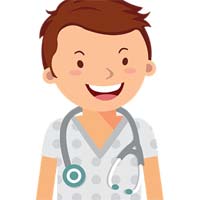
Sports Medicine Specialist
Sports medicine specialists are trained medical doctors in the treatment of people who accept injuries to their bones, muscles, joints, tendons, or ligaments that outcome from physical activity (such as Sports).
The injuries include cartilage tears, ligament ruptures of the knee, and shoulder, knee or wrist bug.
-

Surgeon
A surgeon is a physician trained in performing operations that involve the treatment of injuries, removing infected body parts, and the reconstruction of missing or damaged tissues or organs.
Medical doctors who treat and specialize in the surgery of colon/rectum are called as colon and rectal surgeons.
-
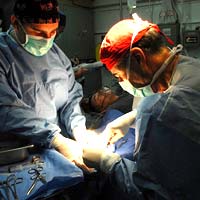
Thoracic Surgeon
Thoracic Surgeon is specialized in chest, heart, and lung surgeries. Thoracic surgeons may further specialize in i area, such equally heart surgery or lung surgery, or in a sub-specialty of that area, such equally coronary avenue bypass surgery.
The thoracic surgeries include open up-heart surgery, off-pump bypass surgery, robot-assisted eye surgery, Pediatric cardiovascular surgery (i.e., children heart surgery), lung volume reduction surgery (LVRS), and more.
-
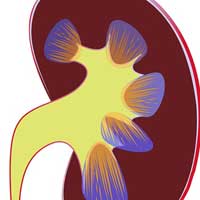
Urologist
Urologists are doctors who specialized in the diagnosis and handling of disorders that affect the male and female person urinary tract.
In add-on to that, urologists are also knowledgeable in treating patients with prostate cancer, and other diseases that affect sexual health and fertility.
-
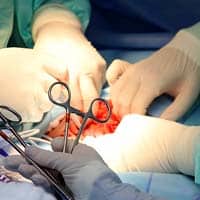
Vascular Surgeon
Vascular surgeons are medical physicians who specialize in the diagnosis, medical management, and surgical treatment of diseases with the blood vessels (vascular diseases).
The scope of vascular surgery encapsulates surgery of veins (for May-Thurner syndrome and varicose veins), the aorta, carotid arteries, and lower extremities, including the iliac, femoral, and tibial arteries.
In some parts of the globe, vascular surgery besides includes dialysis access surgery and transplant surgery.
-

Veterinarian
While all other types of doctors are responsible for treating humans, the veterinarians are responsible for the treatment of ill animals.
A veterinary physician (usually called a vet) practices veterinary medicine by treating illnesses, ailments, and injuries in animals (pets and cattle). Vets provide the diagnosis, treatment in the forms of prescribing medicines or performing surgeries and aftercare.
Vets rely on the clinical symptoms on their diagnosis as animals cannot speak.
smithweandstaid1983.blogspot.com
Source: https://www.bioexplorer.net/types-of-doctors/
0 Response to "Difference Between Family Doctor and Internal Medicine Doctor"
Post a Comment